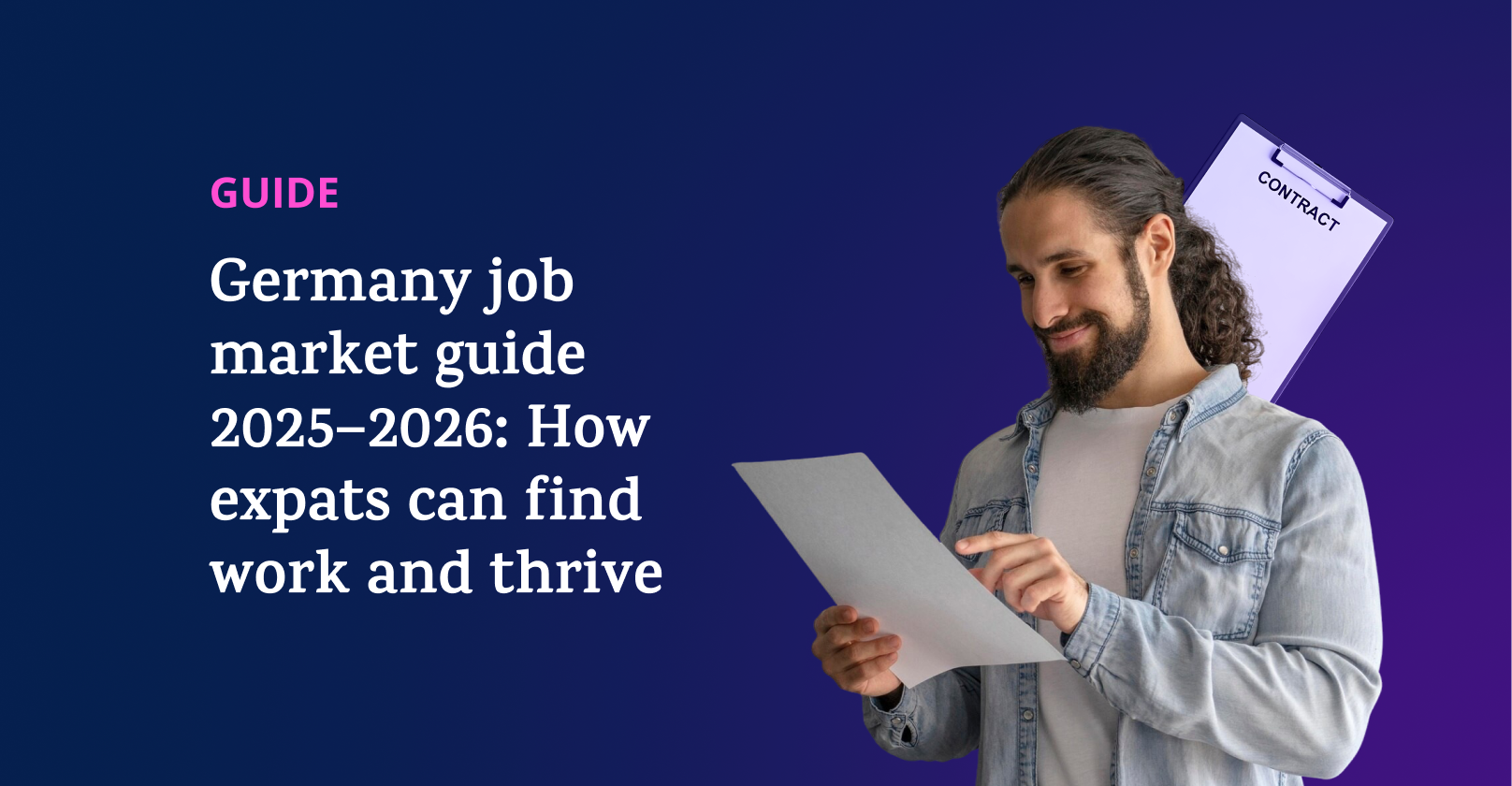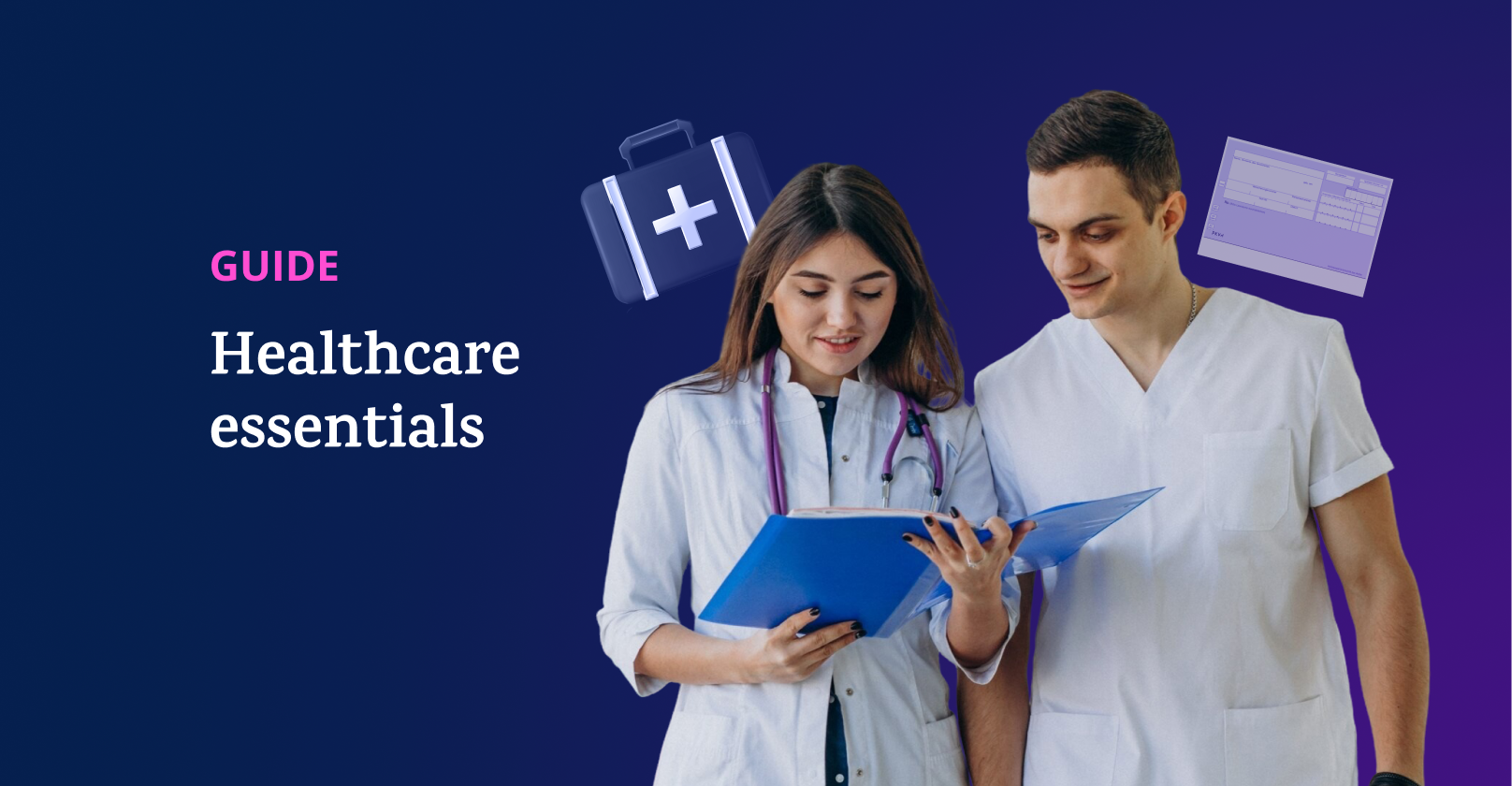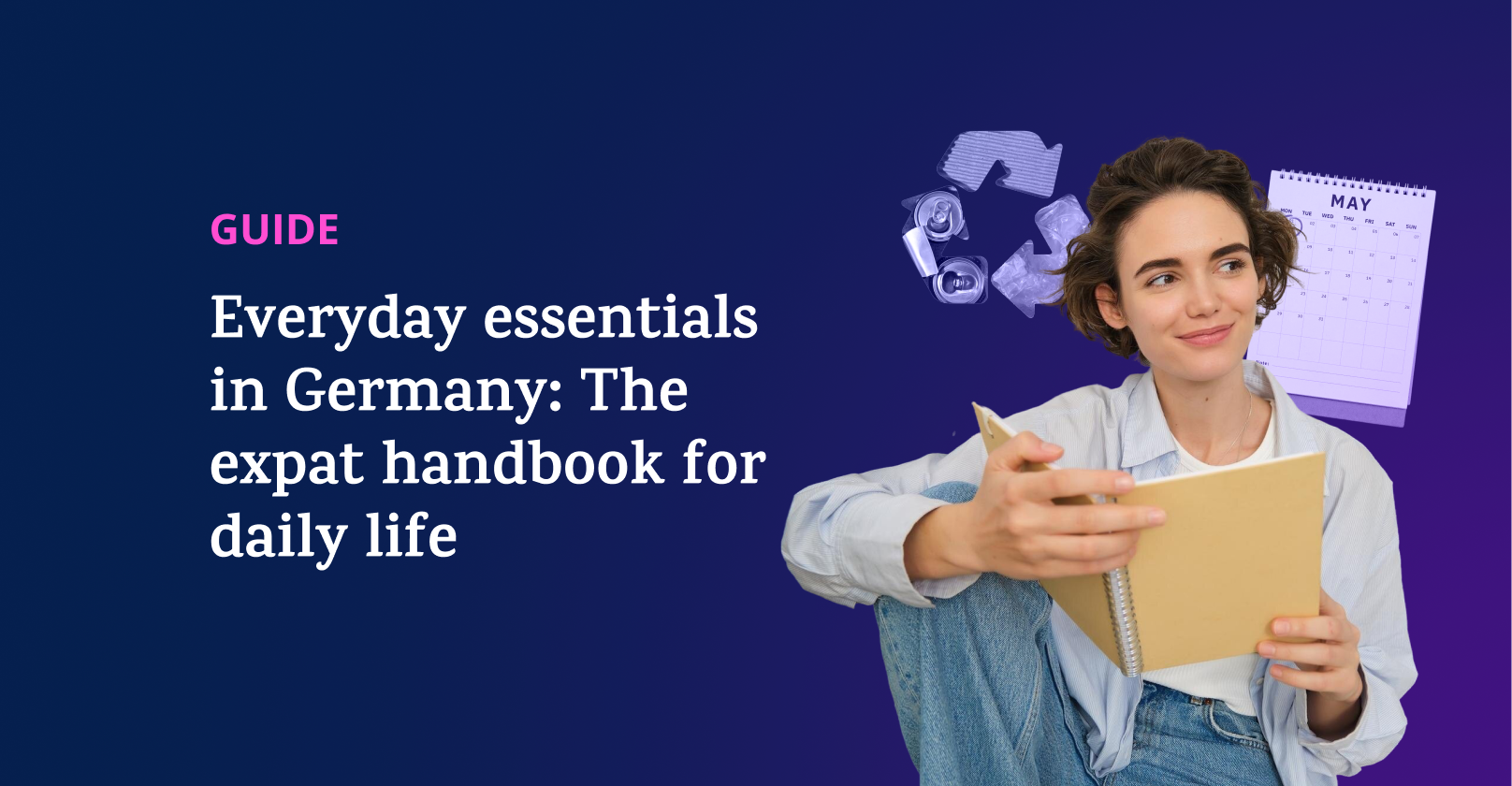The German ‘Ämter’ every expat should know: 90-day survival guide
Welcome to Germany! A land of (mostly) punctual trains, seriously delicious bread and a love affair with rules. And at the center of it all? Your friendly neighborhood government office: the Amt. It’s always there to test your patience, your printer and your ability to book appointments six weeks in advance.
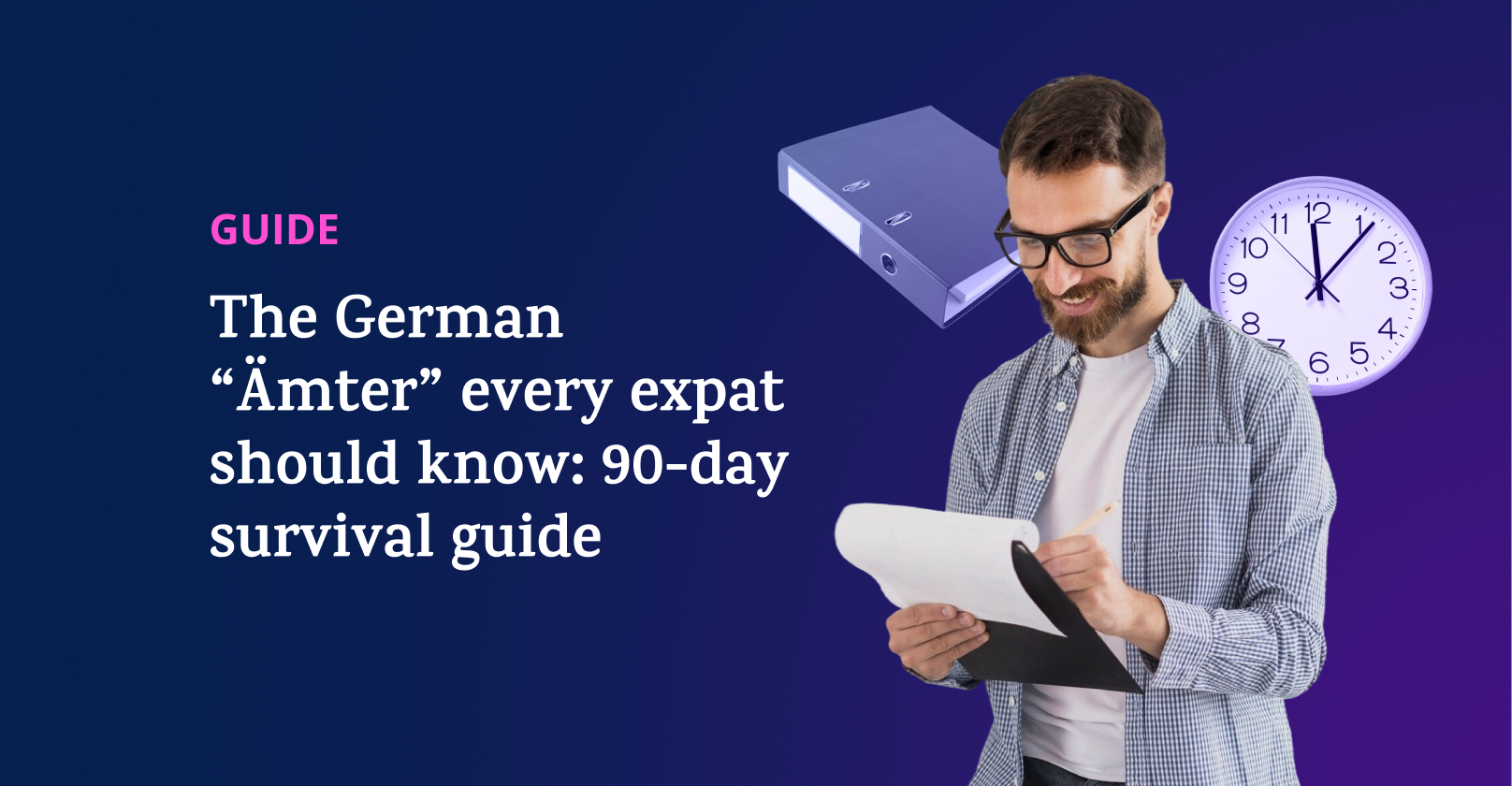
What’s an Amt, you ask? As noted above, it’s a type of government office — but there isn’t just one Amt about to enter your life. In fact, you’ll likely find yourself inside several Ämter within your first few weeks in Germany, a crucial period in which you must register your address, secure a residence permit and set up your health insurance.
Love it or hate it, bureaucracy will almost certainly be among your first big cultural experiences in Germany. But not to worry: once you learn how it works (and what to bring), you may find that German bureaucracy actually makes life smoother. Imagine that.
- Must-visit ‘Ämter’ in your first 90 days
- Useful ‘Ämter’ for later stages of life in Germany
- ‘Ämter’ you might rarely need
- How to survive a visit to a German ‘Amt’
- FAQs
Must-visit ‘Ämter’ in your first 90 days
These are the big ones — the offices you must visit in person (or register with online) within your first 90 days. Merely uttering the names of these Ämter may be enough to elicit shivers in the expat community, but they’re the ticket to legal residency, health insurance and other privileges of adulthood.
‘Bürgeramt’: Where your German life begins
What it is: The Bürgeramt (citizens’ office) is where you register your address and announce to Germany, “I live here now.” Yep, we’re talking about the famous Anmeldung process.
Why it matters: Because without an Anmeldung, you can’t:
- Open a bank account
- Get health insurance
- Obtain your own unique Steuer-ID (tax ID)
- Sign a phone contract (or any contract, for that matter)
Common Bürgeramt hurdles:
- Appointments are scarce, especially in big cities. Book early, or search for available appointments in less-populated districts (Bezirke).
- All documents must be printed. In Germany, paper always trumps digital.
- The staff usually speaks basic English, but having key phrases ready in German is a good idea (and might mildly impress them).
Pro tip: Show up missing just one single sheet and you’ll unlock Germany’s favorite multiplayer game: “Please come back another time.”
This is your first real boss fight. You’ll walk out wobbly but proud and, most importantly, officially part of the system.
‘Ausländerbehörde’: The gatekeepers of your stay
What it is: The immigration office. It’s the place that handles residence permits, Blue Cards, student visas and family reunification.
Why it matters: if the Bürgeramt says, “Welcome,” the Ausländerbehörde says, “You may stay.” And if you’re a non-EU citizen, you’ll need this approval to live, work or study in Germany.
Each city has slightly different rules, requirements and processing times. So, two expats with identical paperwork might still get different answers depending on where they live. It’s not personal; it’s just how decentralized German administration works.
What to expect:
- Appointments are notoriously hard to come by. Book early, and stalk the online system for sudden openings.
- Bring extra photocopies of every document, even if it’s not listed as a requirement to do so.
- Bring an interpreter (Dolmetscher/in) or a German-speaking friend (unless your German is B2+ and your nerves are made of steel).
- Different cities = slightly different rules. Always check your city’s official website for specific instructions.
You’ll likely face long waiting times and a lot of official stamps. But once approved, you’ll walk out with your residence permit (Aufenthaltstitel) and a huge sense of relief.
‘Finanzamt’: Meet your tax ID (‘Steuer-ID’)
What it is: The Finanzamt is Germany’s tax office. After completing your Anmeldung, you’ll automatically receive your Steuer-ID (tax identification number) by mail within a few weeks.
This number is unique to you and stays with you for life.
Why it matters: Whether you’re an employee, freelancer or student working part-time, your Steuer-ID is essential for getting paid and filing taxes.
For employees
Once your Steuer-ID arrives, simply hand it to your HR department. That’s it! You’re officially ready to receive your first paycheck in Germany.
For freelancers or the self-employed
You’ll also need a Steuernummer, issued after registering via ELSTER (Germany’s online tax platform). It’s bureaucratic, yes — but once you're done, you’re officially recognized as a business. Congratulations! You’re now your own accountant.
Fast Q&A round: Tax IDs in plain English
Q: What’s a Steuer-ID?
A: Your personal tax number (for employees and students)
Q: What’s a Steuernummer?
A: Your business tax number (for freelancers & VAT)
Q: Do I need to register for VAT?
A: It’s required if you expect to earn over €25,000/year. Otherwise, apply for the Kleinunternehmerregelung (small-business exemption).
Pro tip: Save every tax letter. You’ll never know when the Finanzamt wants to talk again.
‘Krankenkasse’ and ‘Gesundheitsamt’: Health comes first
What they are: The Krankenkasse is your health-insurance provider. The Gesundheitsamt is your local health office; it handles certificates for jobs, vaccines and hygiene courses.
Why they matter: Health insurance (Krankenversicherung) is mandatory in Germany. Everyone needs it, no exceptions. And you might visit the Gesundheitsamt to get a health certificate for work or school, show proof of vaccinations, or take required hygiene courses for certain professions.
Public vs. private insurance: The basics
| Public (gesetzliche Krankenversicherung) | Private (private Krankenversicherung) | |
| Who’s it for | Almost everyone; compulsory for employees below a certain income threshold | Anyone can apply; usually cheaper for young, healthy individuals |
| Cost | Income-based (~14–15% of salary) | Based on age, health and coverage; costs can rise over time |
| Coverage | Standard medical care, doctor visits, hospital stays | Often broader with faster access; some treatments may require extra fees |
| Family coverage | Free for non-working spouse/children | Each person insured separately |
| Best for | Employees, students, newcomers wanting simplicity | Young professionals, self-employed individuals, high earners seeking tailored plans |
Pro tip: Keep a folder with all of your certificates and vaccination records. It’ll save time and headaches if an employer or official asks for them.
Remember: In Germany, good health is a right. But bureaucracy makes sure you prove it before you use it.
‘Agentur für Arbeit’ vs. ‘Jobcenter’: Spot the difference
Germany has two main offices for employment support.
What they are:
- Agentur für Arbeit (federal employment agency): It helps with job hunting, CV coaching, training and recognizing foreign qualifications.
- Jobcenter: It provides financial support through unemployment benefits or Bürgergeld (social welfare).
Why they matter: Whether you’re between jobs, new to the market or in need of support while settling in, these offices connect you to Germany’s social safety net. Keep in mind, though, that each serves a distinct purpose.
Confused? Don’t worry. They’ll redirect you faster than a Berlin hipster finds a new coffee trend.
Agentur für Arbeit vs. Jobcenter
| Agentur für Arbeit | Jobcenter | |
| Focus | Career guidance, job search support, training, recognition of foreign qualifications | Income support, unemployment benefits, Bürgergeld |
| Eligibility | Anyone registered as a job seeker | People needing income assistance |
| Services | CV help, interview prep, job listings, training courses | Financial support, housing assistance, social counseling |
| Interaction style | More advisory; long-term career planning | More administrative; focused on eligibility and payments |
| Best for | Anyone actively job hunting | People in financial need while job searching |
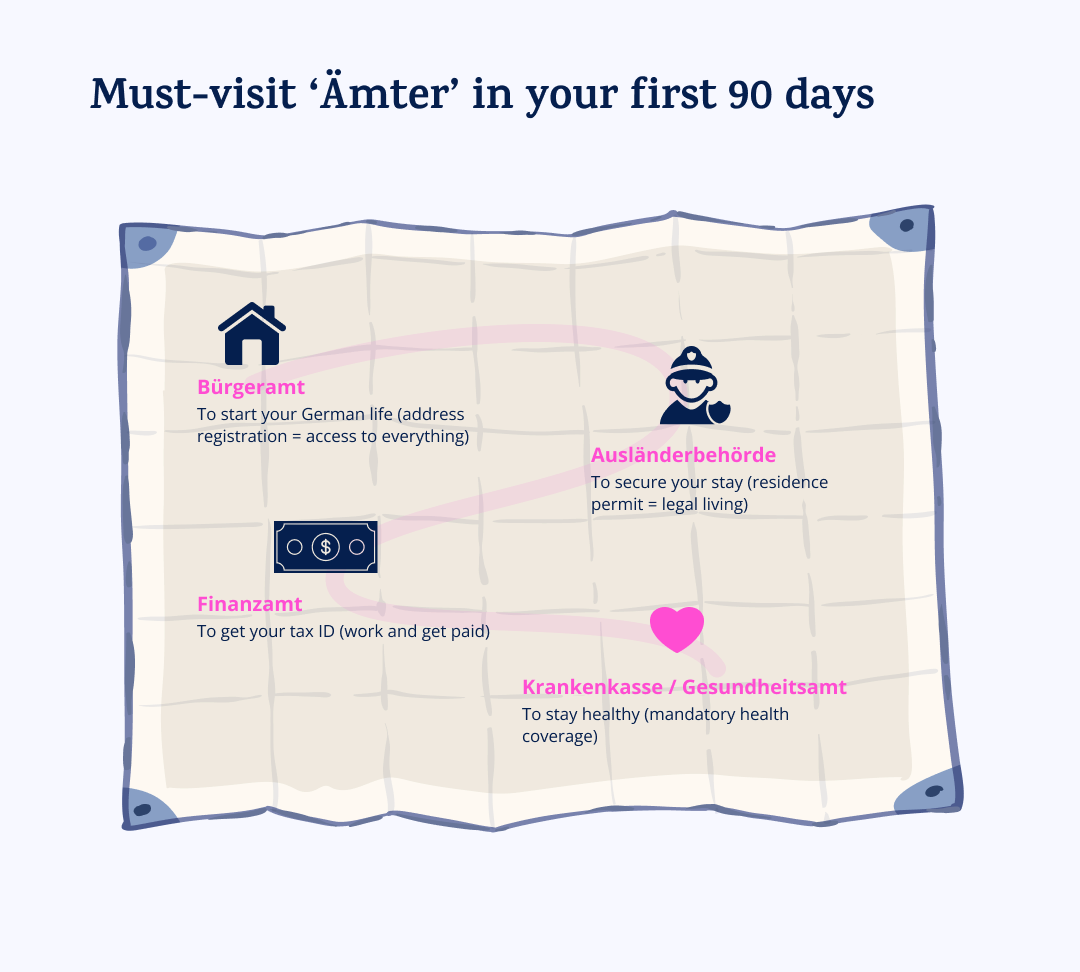
Useful ‘Ämter’ for later stages of life in Germany
So, you’ve wrestled with the Anmeldung and made peace with health insurance. You may have even filed your taxes. Now it’s time for the next level — the offices that crop up once life in Germany really starts to get serious.
‘Familienkasse’: Applying for ‘Kindergeld’
What it is: The Familienkasse is the office that processes child benefits (Kindergeld). Why it matters: If you have children, this is the place to secure financial support from the state. A small but welcome boost to your family budget.
How it works and what to bring: The Familienkasse reviews your application for Kindergeld after you first register your child. For that, you’ll need:
- Your child’s birth certificate (Geburtsurkunde)
- Your Anmeldung (proof of residence)
- Your own ID or passport
- Bank details for where the benefit should be transferred
Processing usually takes a few weeks, so patience (and a cup of coffee) is essential.
‘Führerscheinstelle’: Exchanging your driver’s license
What it is: The Führerscheinstelle handles license conversions for foreigners living in Germany.
Why it matters: If you’re from a non-EU country, your home license is usually only valid for 6–12 months after registering in Germany. After that, it’s either exchange time or test time.
What to expect:
- Some licenses require an official translation (beglaubigte Übersetzung).
- Some countries of origin necessitate a theory and/or practical test.
- Timelines can be long — start early!
- Appointment availability varies wildly by city.
- Bring:
- Your passport
- Your current license
- Proof of residence (Anmeldung)
- A biometric photo
‘Kfz-Zulassungsstelle’: Registering a car
What it is: The Kfz-Zulassungsstelle is the vehicle registration office. Whether you’ve bought a car or imported one, this is where you make it road-legal.
Why it matters: You can’t legally drive a car in Germany without registering it. Additionally, if you drive in the city, you must obtain a mandatory environmental sticker (Umweltplakette), which indicates your vehicle’s emissions class to drive in low-emission zones (Umweltzonen).
What to bring:
- Vehicle documents (Fahrzeugschein/Fahrzeugbrief)
- Proof of insurance (eVB-Nummer)
- ID and Anmeldung
- If buying from a dealership, the purchase contract
In some cities, the Führerscheinstelle and Kfz-Zulassungsstelle are combined under one Straßenverkehrsamt (road traffic office). This varies by location, so check your city’s website before you go.
Pro tip: Book an appointment (Termin). Walk-ins can involve epic queues.
City note: In some cities, the Führerscheinstelle and Kfz-Zulassungsstelle are combined under one Straßenverkehrsamt (road traffic office).
‘Jugendamt’: More than emergencies
What it is: The Jugendamt (youth welfare office) supports families with childcare, daycare (Kita) placement, parenting advice and counseling.
What they do:
- Allocate daycare and preschool spots (Kita-Plätze)
- Offer family counseling and support services
- Provide guidance on child benefits (Elterngeld, Kindergeld) and parental leave
- Occasionally mediate in conflicts, but mostly preventively and supportively
Pro tip: Apply early for daycare. Slots can fill up quickly. And don’t worry: visiting the Jugendamt doesn’t automatically mean trouble. They’re there to support you.
‘Sozialamt’: The safety net
What it is: The Sozialamt (social welfare office) is Germany’s safety net for residents who need financial or practical support. It provides housing aid, disability services and emergency help for those in urgent need.
Why it matters: If you’re not covered by the Jobcenter but still need assistance, the Sozialamt is your next stop.
What they do:
- Provide financial aid for housing or basic needs
- Support people with disabilities (Behindertenhilfe)
- Offer emergency assistance in crises
- Occasionally, coordinate with other social services for comprehensive support
Pro tip: It’s useful to know where your local Sozialamt is and what documents are required, so they can help in situations you might not anticipate.
University offices: Students’ survival squad
What they are: For expats studying in Germany, two key offices are especially important: the International Office and the Studierendenwerk.
Why they matter: They handle everything that makes student life functional: residence permits, dorms, food, legal paperwork and support when things go sideways.
What they do:
- International Office
- Help with visa/residence permit guidance
- Official document support
- Advice on legal requirements
- Academic transitions
- Studierendenwerk
- Help in the search for affordable student housing
- Run cafeterias and meal plans (Mensa)
- Provide financial counseling and, sometimes, emergency aid
Pro tip: Reach out early, especially for housing, because rooms fill up fast. And keep your paperwork organized, as both offices appreciate neat, complete submissions.
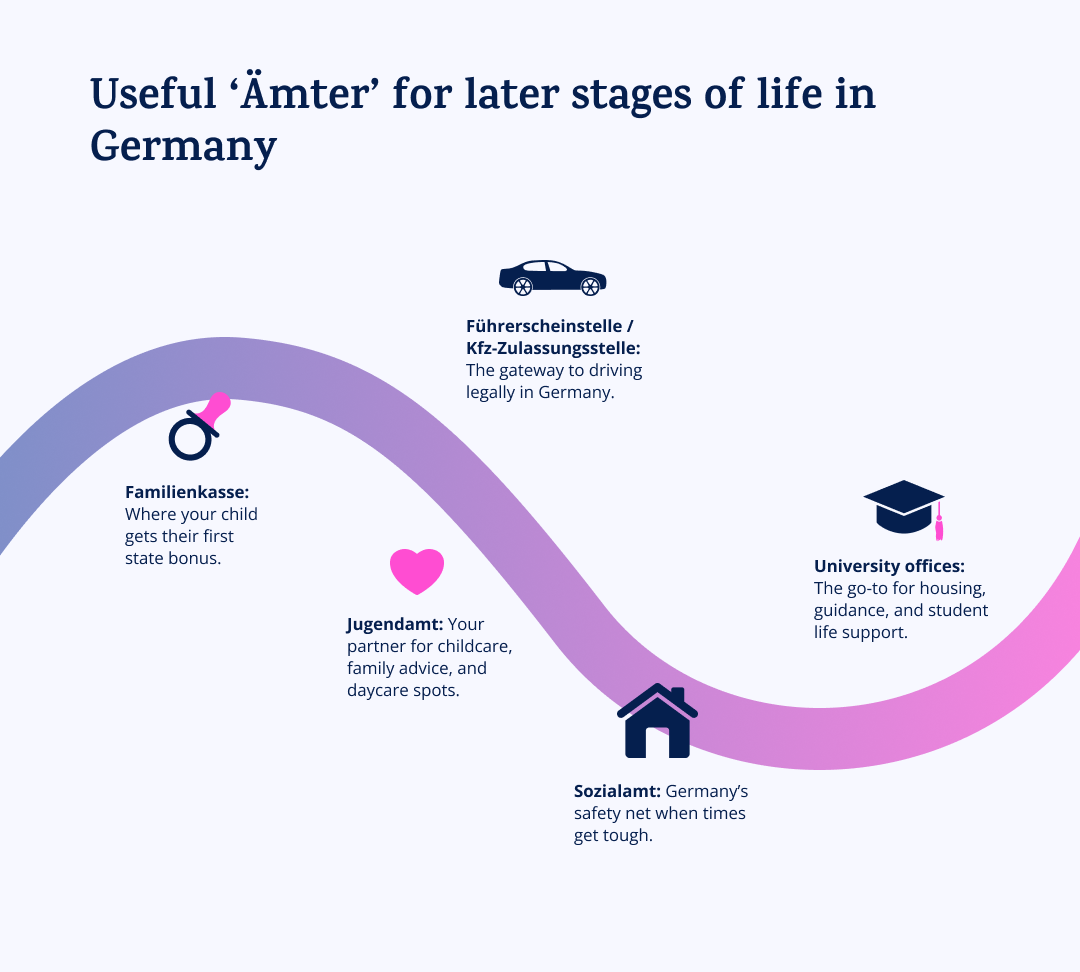
‘Ämter’ you might rarely need
You won’t get to know every government office in your first 90 days. Some only pop up during major life events or career changes. But when they do, you’ll be glad you know who’s who.
‘Standesamt’: Life’s big moments
What it is: The Standesamt (civil registry office) is where Germany officially records life’s major milestones: births, marriages and deaths.
Why it matters: Whether welcoming a new family member, getting married or registering a loved one’s passing, the Standesamt issues the official certificates you’ll need for legal and bureaucratic purposes.
Pro tip: Keep multiple copies of any certificate. You’ll need them for banks, visas, insurance and schools. Yes, even a decade (or two) later.
‘Ordnungsamt’: Keeping order
What it is: The Ordnungsamt (public order office) enforces city rules and regulations. Its responsibilities include issuing permits for events, responding to complaints and monitoring public safety.
Why it matters: They are not the police, but they do keep daily life orderly, from shutting down your rooftop party to fining you for that rogue barbecue.
Pro tip: Always check local rules for public events or unusual activities; fines are real, but generally avoidable.
‘Deutsche Rentenversicherung’: Retirement already?
What it is: The Deutsche Rentenversicherung is Germany’s pension system. While retirement might feel far off, long-term expats should familiarize themselves with the system.
Why it matters: If you’re working in Germany long-term, you’re contributing — and potentially earning future pension benefits, even across countries.
Pro tip: Track your contribution history (Versicherungsverlauf), especially if you’ve worked in multiple countries. Germany has agreements with many other countries to transfer credit.
‘IHK’ and ‘Handwerkskammer’: The guild masters
What they are:
- IHK = chamber of commerce (for most freelancers and businesses)
- Handwerkskammer = chamber of crafts (for tradespeople)
Why they matter: They oversee business registration, recognize certificates and ensure that professionals meet German standards in their respective fields. If you want to freelance or run a skilled business, you’ll probably need their blessing.
Pro tip: Register early to avoid penalties and delays. Bring proof of qualifications, ID and any business documentation.
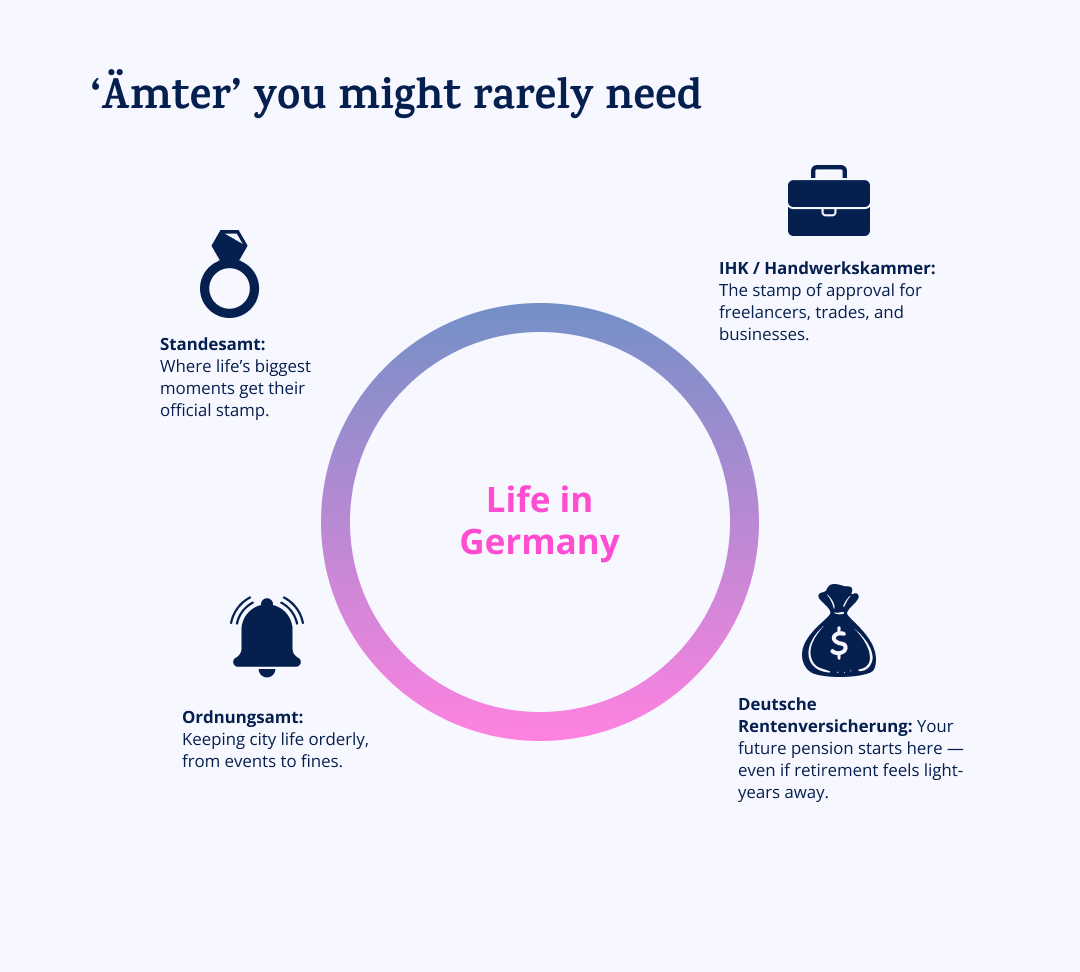
How to survive a visit to a German ‘Amt’
Think of each visit as a mini quest. You need the right gear, the right scrolls (i.e., documents) and the right spell: Geduld (patience). Here's your cheat sheet.
No appointment, no service
Most offices operate strictly by appointment. Walk-ins might get lucky, but often you’ll be turned away. Book early and check constantly for cancellations.
Bring at least two copies of every document
Originals + copies = your survival kit. Every Amt loves paperwork, and missing even one piece can mean another trip. Organize your folder by type (ID, proof of residence, contracts) to make your life easier.
Don’t count on English
While some staff members speak English, many do not. Bring a bilingual friend to translate and brush up on some key German phrases:
- Ich habe einen Termin. (I have an appointment.)
- Welche Unterlagen benötigen Sie? (Which documents do you need?)
Expect delays
Waiting is part of the experience. Grab a Wartemarke (queue ticket) and keep it safe. It’s your golden ticket. Bring a book, phone or coffee. Be patient, and embrace the slow pace.
Cash is still king
Many offices still prefer cash or EC-Karte as payment for fees. Even small amounts can be required for stamps, certificates or processing. Don’t get caught empty-handed.
Check opening hours
Ämter are rarely open on weekends. Thursdays often have extended hours, so plan accordingly. Arriving right at opening time can sometimes shorten your wait.
Keep every paper
Once stamped, a document becomes bureaucratic gold. Keep everything organized. You’ll often need copies for other offices or future applications.
‘Amt’ ping-pong
One Amt may send you to another: Bürgeramt → Finanzamt → Krankenkasse. Treat it like a treasure hunt. Each stamp gets you closer to your goal.
Rules vary by city
Germany’s federal system means that cities and states may have different requirements. Always check local websites or call ahead to avoid surprises.
Be formal, be friendly
Politeness goes a long way. Greet staff, use Sie instead of du, and thank them. A friendly attitude often speeds up service and makes your visit more pleasant.

FAQs
Do I have to register my address in Germany?
Yes, registering your address (Anmeldung) is mandatory for anyone moving to Germany. It’s your first step to unlocking many critical services, from opening a bank account to getting health insurance. Skipping it can lead to fines, so book your appointment early!
Which ‘Amt’ handles residence permits and visas?
That would be the Ausländerbehörde (foreigners’ office). They manage residence permits, student visas, Blue Cards and family reunification.
Do I need an appointment at the ‘Ausländerbehörde’ or ‘Bürgeramt’?
Yes; both offices usually require an appointment. Walk-ins are rarely accepted and often turned away. It’s best to book an appointment online as early as possible and check the website regularly for cancellations. Make sure to bring all required documents — both the originals and copies — to avoid any delays.
Bureaucracy doesn’t have to be a nightmare
German bureaucracy can feel like a mountain of paperwork at first. But with a little preparation, it’s much easier to navigate than it may seem.
Bring your neatly organized documents, take a deep breath and remember that waiting is just part of the process. A kind smile and polite attitude can make all the difference. Each time you get through an Amt visit, you’ll feel more confident and capable. And remember: even Germany’s most formidable systems can be conquered with patience, organization and a bit of good humor.

Begin your personal language journey
- Courses tailored to your learning needs
- Qualified teachers, small class sizes
- Expert-designed curriculum
- Live classes with native-level teachers


We do our best to keep this guide accurate and up to date, but rules, processes and information can change quickly.
Lingoda can’t take responsibility for any decisions made based on this content, so we recommend double-checking with official sources.





